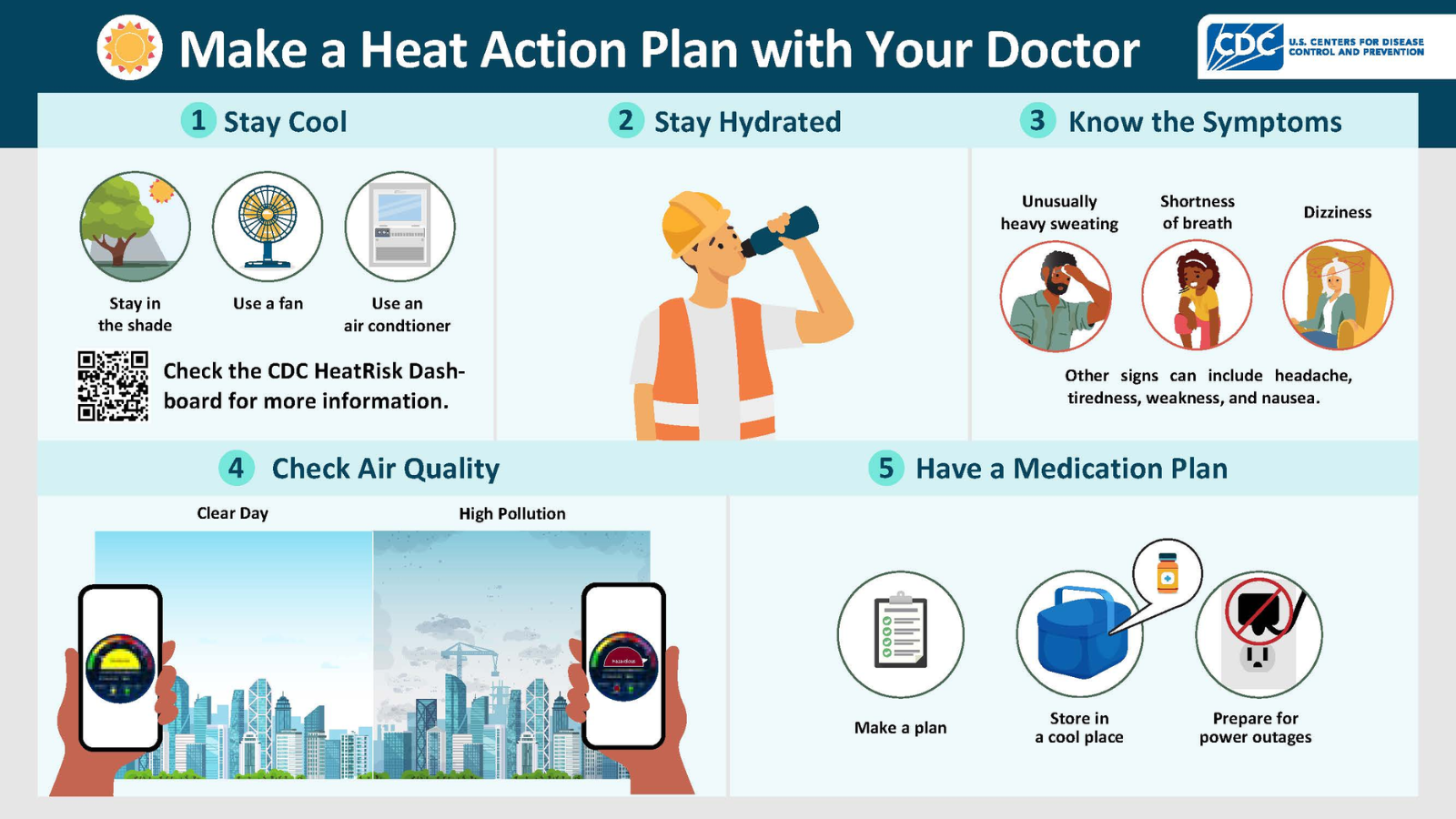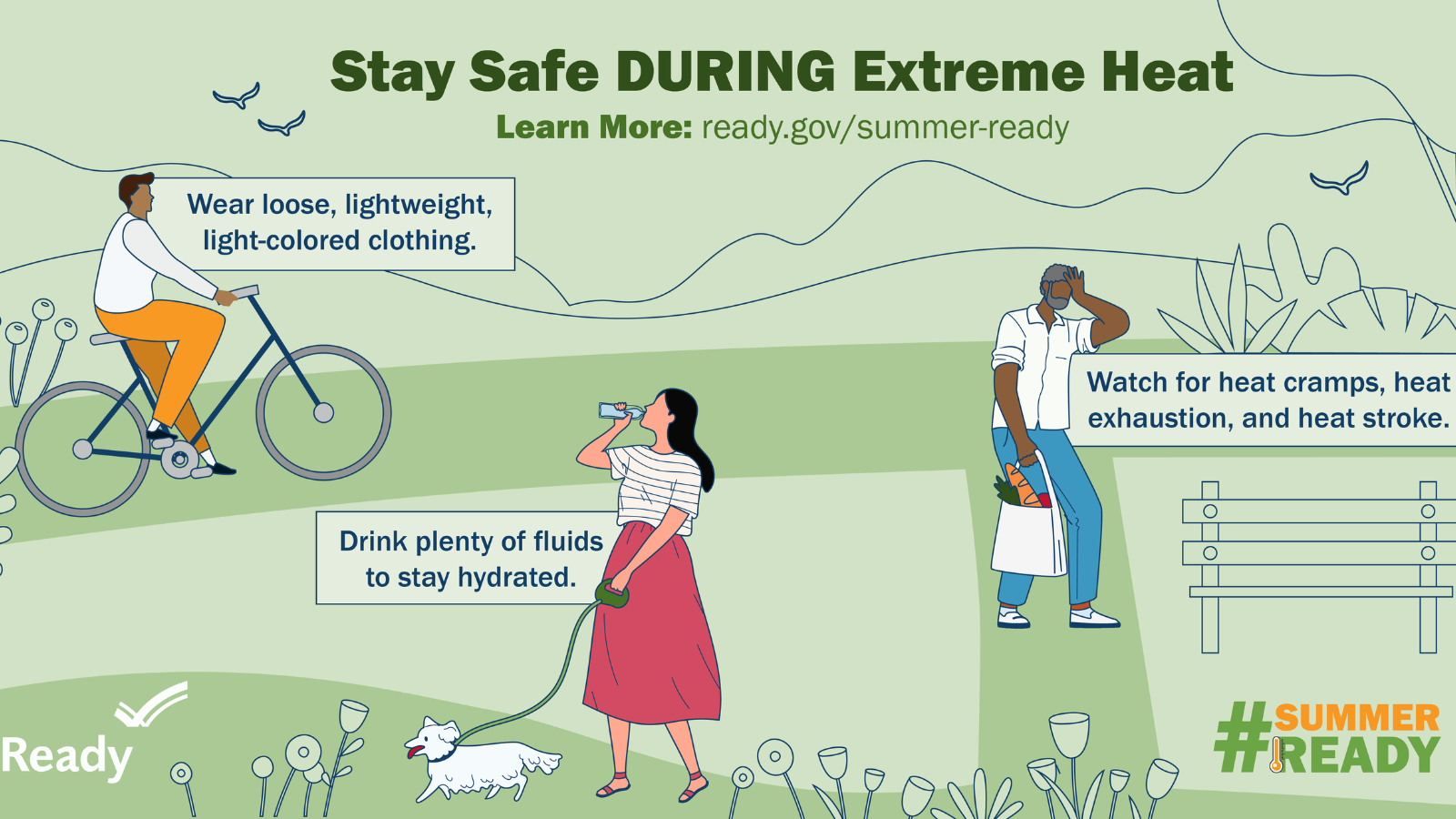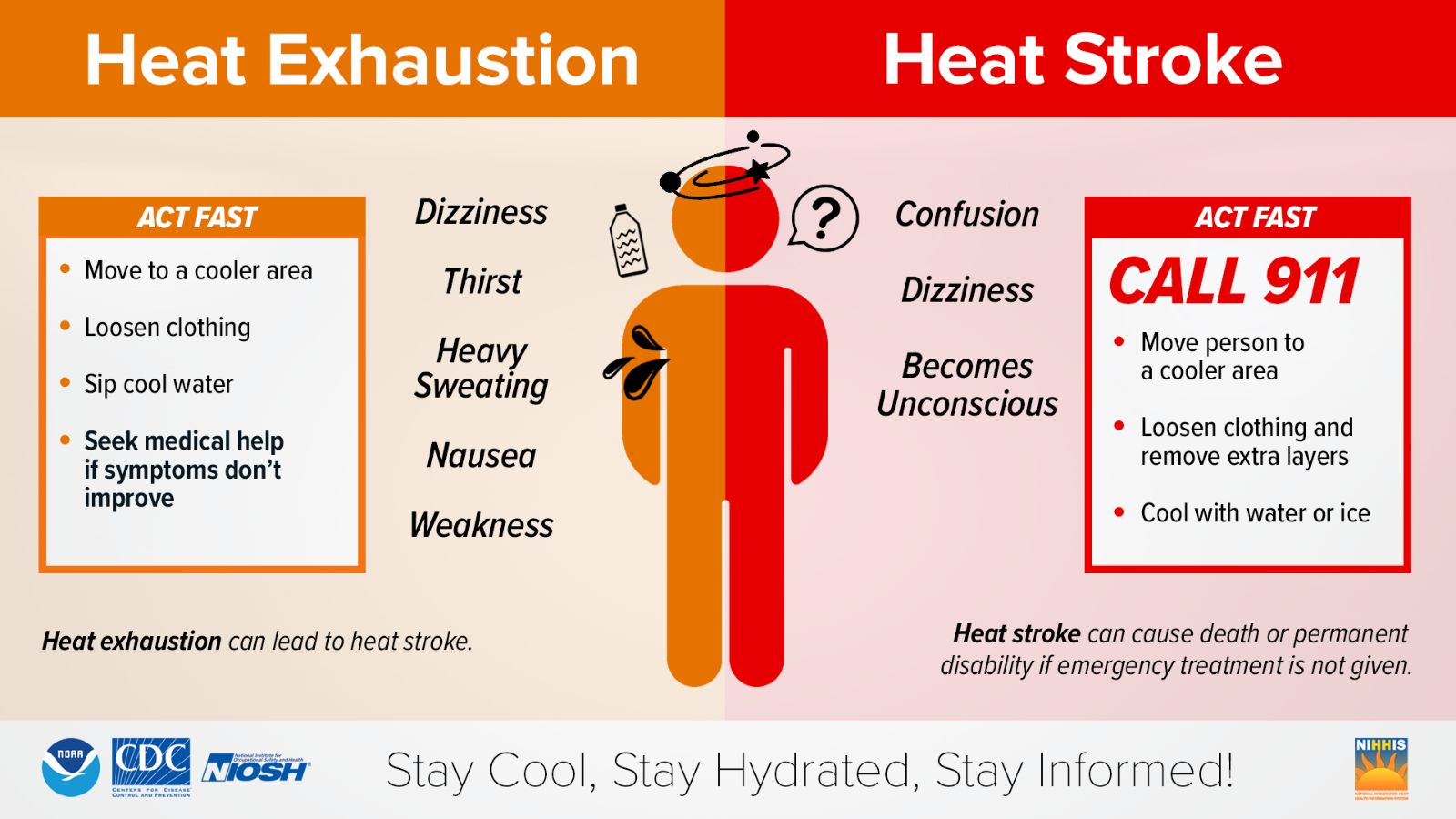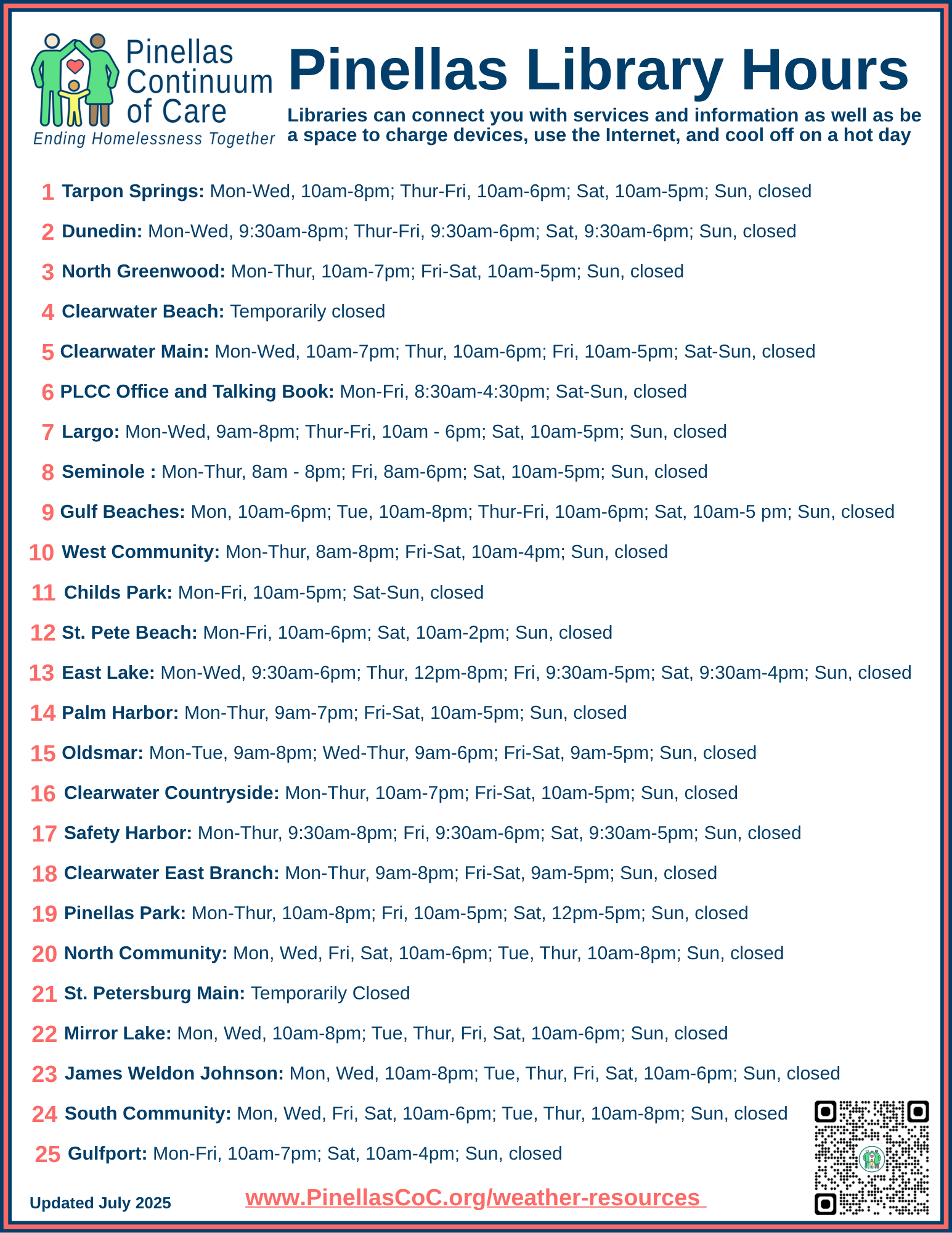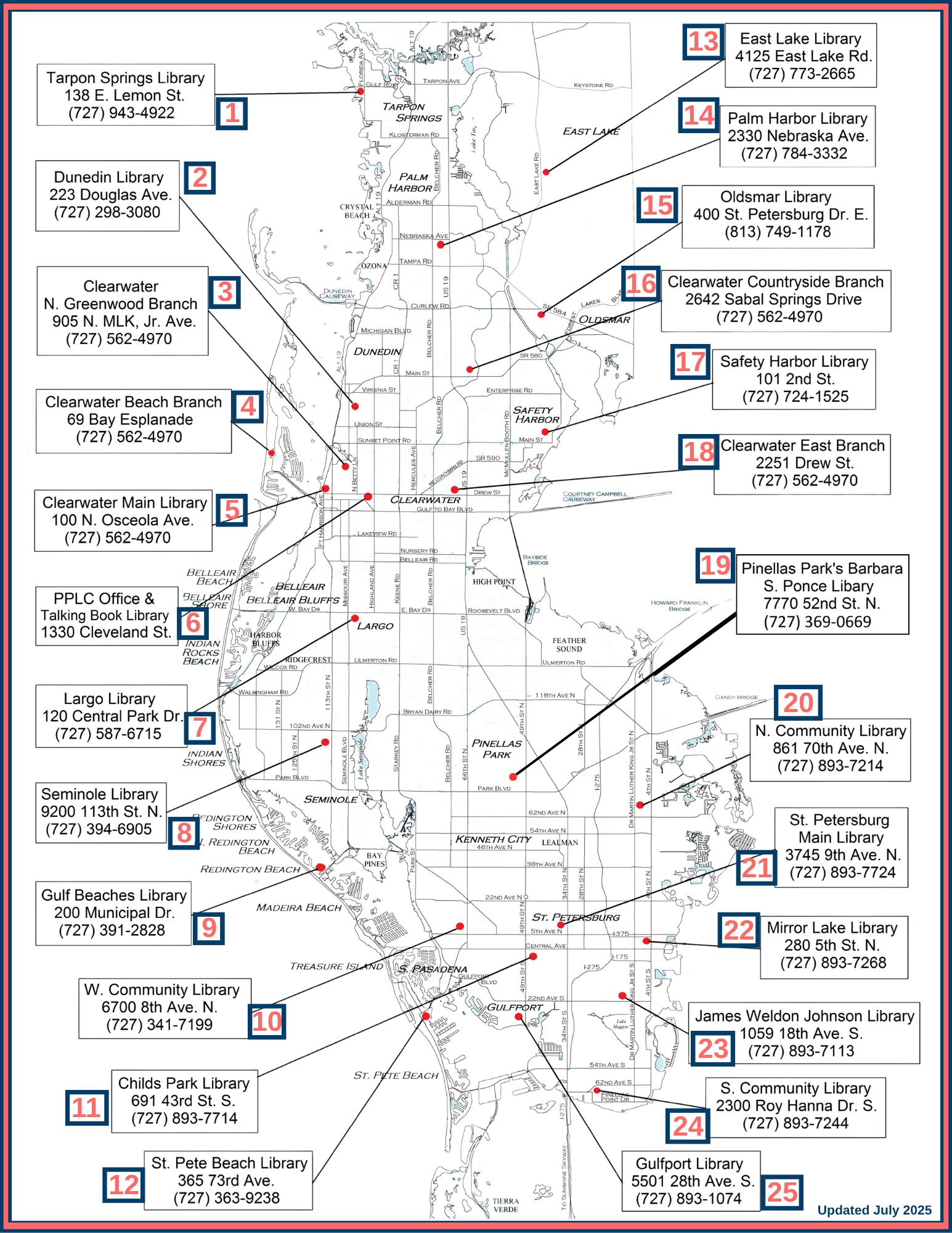
Extreme Weather
Resources for Cold Nights, Hot Weather, Hurricanes, and other Storms in Pinellas County
Cold Night Shelters ║ Hot Weather Resources ║ Hurricane and Storm Resources
Cold Night Shelters
Pinellas Cold Night Shelters are a lifesaving program that provide those in-need with a warm, safe place to sleep on the coldest nights of the year. The Homeless Leadership Alliance of Pinellas (HLA) activates Cold Night Shelters when the National Weather Service predicts the “feels like” temperature will reach 40-degrees or colder between 6pm and 6am across Pinellas County.
Pinellas Cold Night Shelters are nontraditional, “pop-up” shelters inside of local churches, community centers, and emergency shelters. Pinellas Cold Night Shelters are located in Tarpon Springs, Clearwater, Pinellas Park, Kenneth City, and St. Petersburg. Each location provides guest with a blanket and mat, and many locations provide meals and additional supplies. When activated, Pinellas Cold Night Shelters are open between 6pm and 6am.
The Pinellas Suncoast Transit Authority (PSTA) offers fare-free transportation during Pinellas Cold Night Shelter activations. PSTA bus rides to and from Pinellas Cold Night Shelters are free beginning at 5pm on each night of the activation and ending at 7am the following morning.
Hot Weather Resources
The Florida Department of Health says that “Extreme heat is one of the leading weather-related causes of death in the U.S., and Florida is particularly vulnerable due to its long summers and high humidity. These conditions can overwhelm the body’s cooling system, leading to heat-related illnesses like heat exhaustion and heat stroke, especially for vulnerable populations such as the elderly, children, and those with pre-existing health conditions.” Resources below are intended to help lessen the impact of Florida’s extreme heat.
A map of local heat risk is available below:
Tips for People Experiencing Homelessness During Extreme Heat from the National Integrated Heat Health Information System:
Avoid strenuous activity during the warmest part of the day
Use a buddy system when working in extreme heat, and take frequent breaks
Dress in loose-fitting, lightweight, and light-colored clothes that cover as much skin as possible. Avoid dark colors because they absorb the sun’s rays
Protect your face and head by wearing sunblock and a wide-brimmed hat
Work with your support network if you have one - neighbors, family and friends - to monitor and address your heat-related needs - have them check in with you regularly to ensure you are safe and healthy
Read the side effects of any medications and talk with your doctor about how heat exposure will interact with them
Know the phone numbers and locations for local medical facilities, such as hospitals, to create contingency plans if you cannot access a cooling center, or need more help
Safety Information:
Resources:
Aquatic centers, pools, splashpads, and swimming within Pinellas County and the cities of Clearwater, Dunedin, Largo, Madeira Beach, Oldsmar, Pinellas Park, Seminole, St. Pete Beach, St. Petersburg, and Tarpon Springs
Libraries within Pinellas County, Pinellas County Library Cooperative (also see below)
Hurricane and Storm Resources
Alert Pinellas: https://pinellas.gov/alert-pinellas
Pinellas CoC Storm Updates: www.PinellasCoC.org/weather-resources
Pinellas County Hurricane Resource Guide in English, Spanish, and Vietnamese
Pinellas County Information Center: 727-464-4333
National Hurricane Center: www.nhc.noaa.gov
The 2025 Pinellas CoC Provider Hurricane Season Kickoff Meeting was held on June 2nd. Click here to access the recording and materials.
Recovery Resources for Hurricanes Helene and Milton


